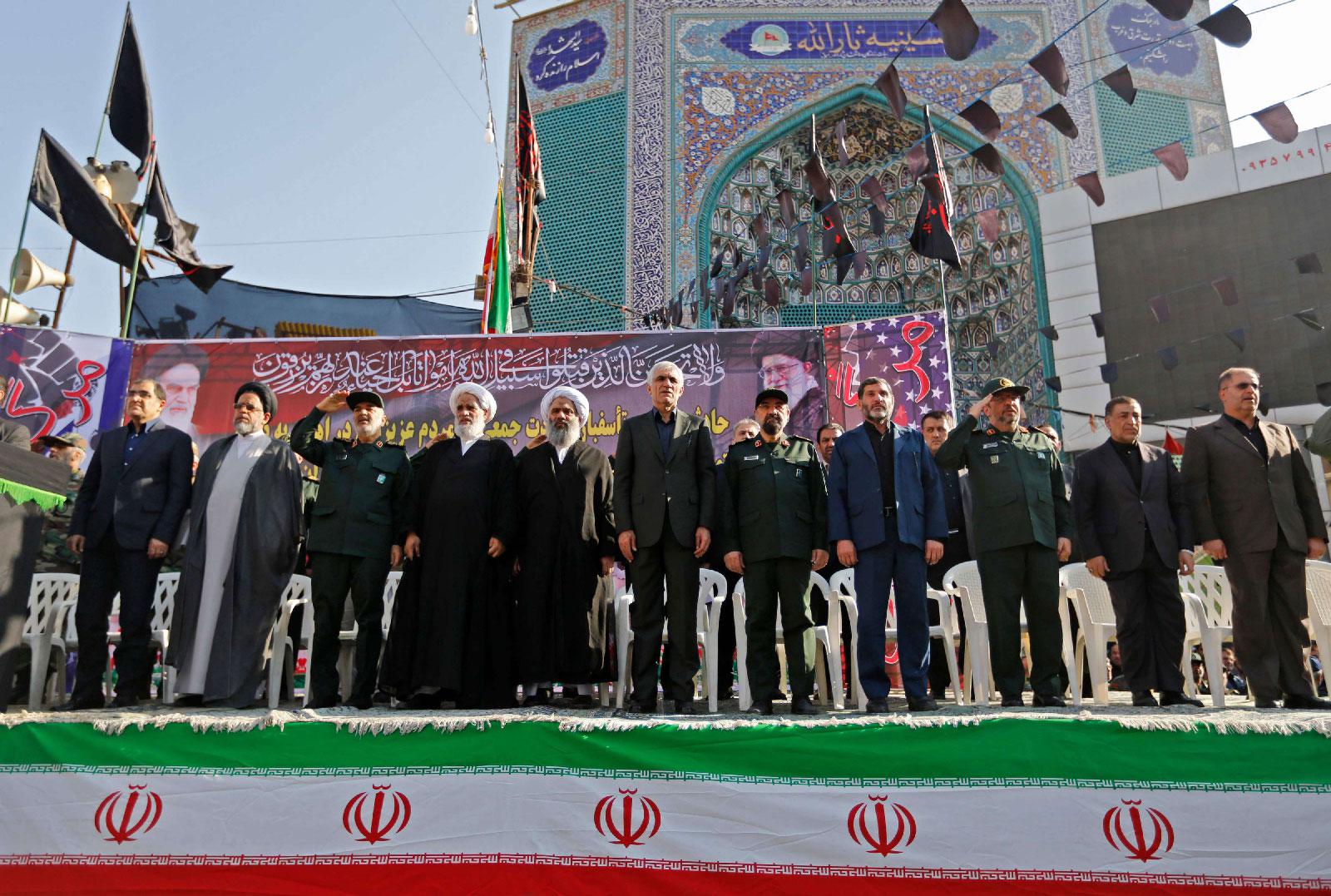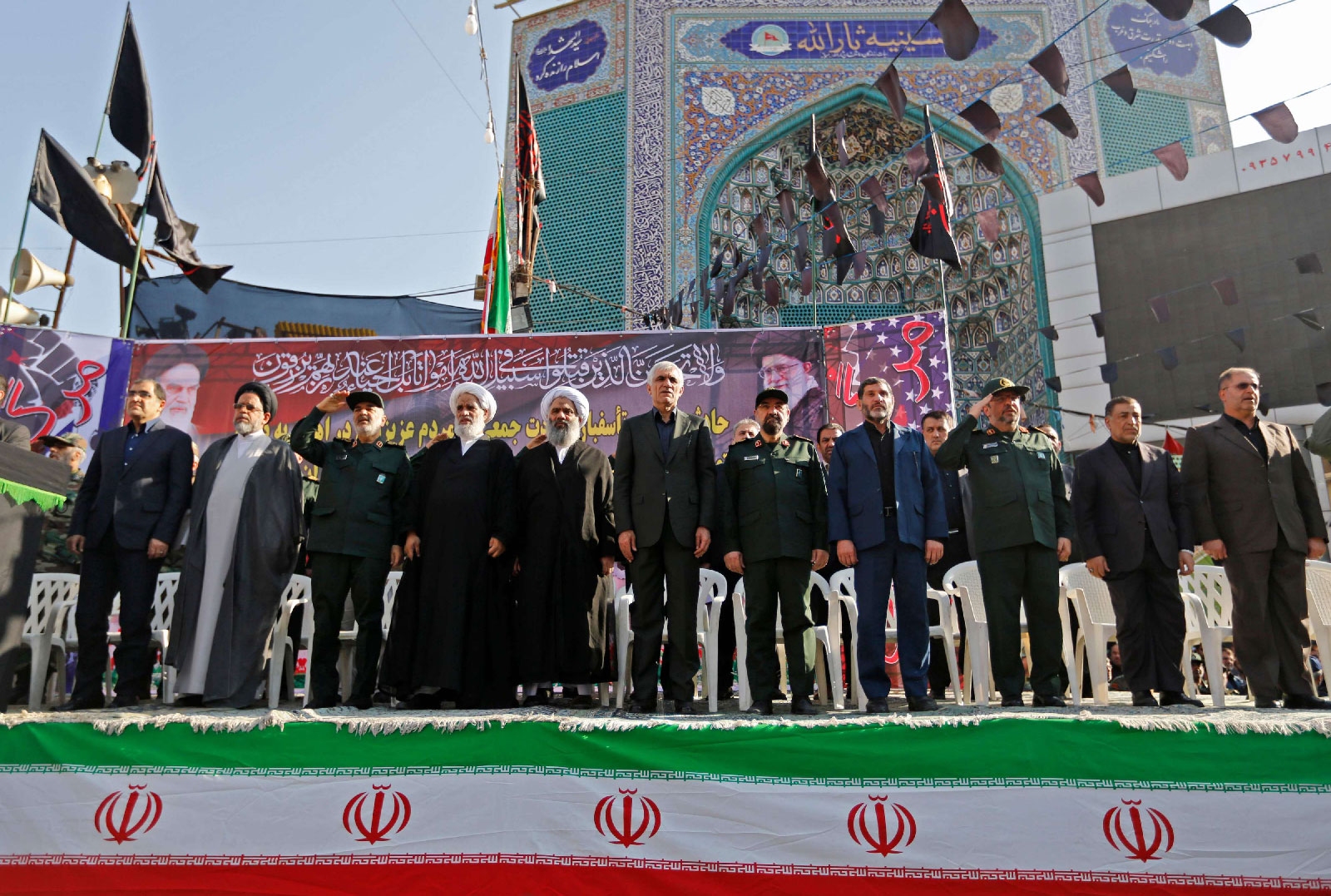Iran should look in the mirror before placing blame for Ahvaz attack
Iran’s Islamic Revolutionary Guard Corps (IRGC) staged a military parade September 22 in Ahvaz, a city in the restive Arab-majority south-western Khuzestan region of Iran. The IRGC was marking the anniversary of Iran’s 8-year war with Iraq in the 1980s when four gunmen opened fire on the procession.
Most of the nearly 30 people killed were IRGC members but women and children were caught in the crossfire, leading to widespread condemnation of the attack.
Unsurprisingly, the Islamic State (ISIS) claimed responsibility, as did a local Arab militant emancipation movement called the Patriotic Arab Democratic Movement in Ahwaz.
Despite the conflicting claims of responsibility, Iran blamed the United States and its regional Arab allies for the attacks. Iranian Supreme Leader Ayatollah Ali Khamenei made not-so-subtle accusations and threats against regional oil-rich Arabian Gulf countries.
The United States shot back with a level-headed assessment and said Iran should look in the mirror if it wanted to understand why it had been targeted.
What would the Iranian regime see in that mirror? Would it see a peaceful face, one that has striven to bring about stability and prosperity for itself and the entire region? Or would it see a disease-pocked visage, one that has spread nothing but death, sectarianism and misery at home and abroad?
Iran’s actions have left a lasting and ugly impression on the world. See how people live in Iran and what the regime is doing in Iraq and Syria to understand what Iranian sectarian meddling has wrought.
Known as “Arabistan” to the local Iranian-Arab population that has been suppressed and repressed by the Persian mullahs of Tehran for decades, Khuzestan was one of the main theatres of the initial Iraqi invasion into Iranian territory in 1980.
Although these Arabs are almost all followers of Iran’s official Shia faith, the Iranian regime still considers them a dangerous minority group because they are Arabs. The regime polluted Ahvaz’s waters, poisoned its arable land and tortured its people, preventing them from speaking their own language.
Is it any surprise that Iranian Arabs would feel pushed to violence in the face of such racist colonialism?
Iran’s allegations of the Gulf countries’ collaboration with the West also ring hollow. Iran has actively worked with Western powers and even Israel since Ayatollah Ruhollah Khomeini established the Islamic Republic and began to wage ideological and actual war against everyone in the region in 1979.
Who can forget the Iran-Contra scandal that almost toppled the Reagan administration in 1987? Iran not only received arms to fight neighbouring Muslim Iraq from the “Great Satan,” as we hear the United States referred to almost daily, but the weapons transfers were facilitated by none other than the “Zionist entity,” Israel, which Iran has threatened to wipe off the map.
In 2014, Iran’s Shia jihadist proxies in Iraq were directly receiving air support from the Americans to fight ISIS. For years, the Forces of the Great Prophet — as they grandiosely brand themselves — were directly aided by the forces of the Great Satan, an irony that would be hilarious were it not for its sheer hypocrisy and the countless innocent lives that were lost in the process.
Iran is in no position to be accusing its Arab neighbours of anything. It has worked hand-in-glove with Washington and Tel Aviv while putting on a grand theatre of Tehran’s enmity to these two capitals to elicit popular support.
However, the jig is up, and Iran should not use the death of innocents at a parade as an opportunity to score political points over its rivals.
This article was originally published in The Arab Weekly.



